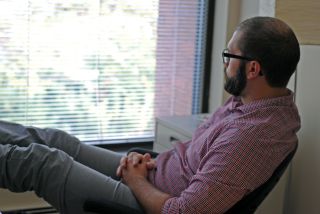Forgiveness
The Courage to Acknowledge Our Mistakes—Without Self-Blame
A Personal Perspective: Learning from miscues without attacking ourselves.
Posted February 5, 2023 Reviewed by Abigail Fagan
Key points
- Making mistakes is part of the human condition. Making a mistake does not mean that you are a mistake.
- Taking responsibility for when we make a mistake is different than blaming ourselves.
- Holding ourselves with compassion, we can learn and grow from our mistakes.

Benjamin Franklin famously commented that two things are certain in life: death and taxes. But there is another certainty that is unavoidable: making mistakes.
There are many amazing things about being a human being. We have evolved to be creatures capable of the deepest love, tenderness, and kindness. Yet another aspect of being human is that we are not perfect beings.
Laws, rules, and regulations are designed to keep us in check. The fear of negative consequences is a deterrent for behaviors that would harm others. As opposed to these external deterrents, we are also wired with an internal check against words and actions that would harm others. The emotion of shame alerts us to when we’ve violated others’ rights and sensibilities. A smidgeon of healthy shame—as opposed to a paralyzing toxic shame—is designed to get our attention when we’ve done something to hurt others—or ourselves.
Whether a math error in our personal accounting or a decision not in our best interest, we may call that a mistake. Perhaps we got involved with someone who turned out to be toxic or not a good fit. Or we find ourselves on a career path that makes us unhappy. Or we made business or financial decisions that got us into some trouble.
Such mistakes or errors in judgment are something we might criticize ourselves for. Our inner critic is poised to pounce on us for any mistake, whether small or inconsequential, such as burning the toast. Often internalized from harsh or critical caregivers, teachers, siblings, or peers, we may be quick to berate ourselves when we’re not perfect. But lest we forget, who is?
It takes a good deal of self-worth and courage to acknowledge mistakes without concluding that we are a mistake. Very commonly, we try to console ourselves by shifting responsibility and shame to others when things go awry. As I wrote in my book, Love & Betrayal:
“When our self-esteem is shaky, we may protect ourselves by insisting that calamitous events are strictly the other person's fault. If we believe that we are "bad" for being shortsighted or imperfect, we will want no part of the responsibility. If we think that a failed relationship means that we are a failure, then we will not possess the calm, non-judgmental presence of mind to learn from our mistakes so that we can move forward with dignity and grace. The growth of wisdom goes hand in hand with being accountable for our choices, though without the added burden of self-blame. As we find the strength to gently embrace our hurt, our fear, and our shame, we can come to understand where we got off track so that we don't repeat past errors.”
Being human means being imperfect. Mistakes are something to learn from, not beat ourselves up for. As artist Kimon Nicolaides put it, the sooner you make your first 5,000 mistakes, the sooner you can correct them. More likely, we’ve made more than that number, with many more to come, though hopefully not major ones. But even then we can grow from them.
The good news is that mistakes are something we can learn from. Broken trust can often be repaired as we take responsibility for our part. We can make amends to people we might have hurt as long as doing so is unlikely to create more pain for them. To soberly acknowledge when we’ve drifted off course, perhaps being unkind or dealing unwisely with a partner, friend, business associate, or child, we can allow ourselves to notice the healthy shame that can propel us to make a course correction. How else can we learn and grow?
The next time you make a mistake, do your best to bring some compassion toward yourself. Remember that mistakes are common to all of us. If you’ve done something particularly egregious or troubling, or if you find that it’s not easy to make a correction (such as with an addiction), you might want to process it with a therapist or support group (such as a 12-Step program). The important thing is to have a strong intention to not repeat the mistake, and get whatever support you need to move forward.
As you learn to hold yourself with more self-compassion and forgiveness, you can view mistakes as a step toward a better and more meaningful life. For better or worse, there is often no better way to move forward in our lives.
©John Amodeo
References
Amodeo, J. (1994) Love & Betrayal. New York: Ballantine Books.


